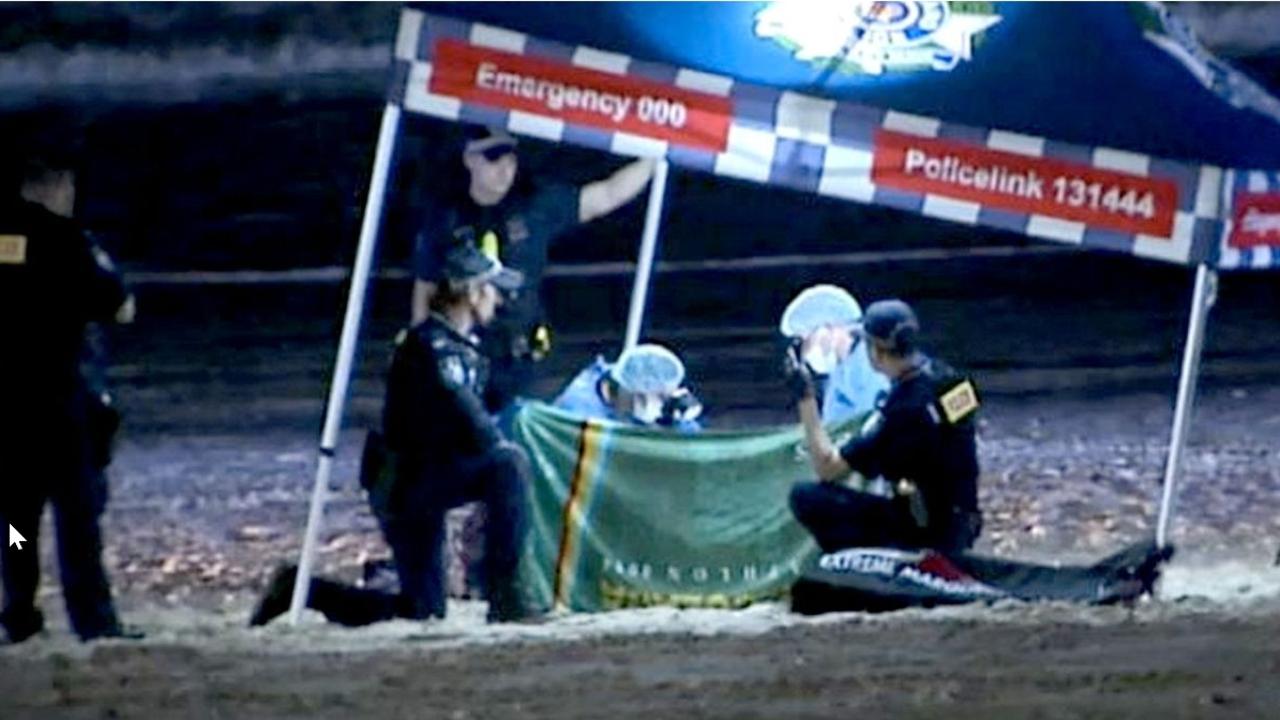Support workers were likely unequipped to diagnose a woman who believed her mentally-ill partner was God before he drowned their child, a court has been told.
The nine-month-old infant was found dead after her lifeless body washed ashore at Surfer’s Paradise on Queensland’s busy Gold Coast on November 19, 2018.
Two days earlier, the child – referred to in court as baby Q – had been thrown into the Tweed River on the NSW and Queensland border by her mentally ill father.
Clinical psychologist Dr Alison O’Neil told the NSW Coroners Court on Thursday police and support workers had failed to recognise the couple’s shared delusion.
“It’s quite common for people with delusional disorder to be quite well functioning and you would not necessarily see they had a mental illness,” Dr O’Neil said.
“Knowing she had a diagnosis and that she believed (another child) was the son of God, that could be one reason (police) would ask for more information.”
Dr O’Neil told the court the woman was described months before the baby’s death as “coherent” by police, who, in body-worn video said she was “mesmerised” by her partner.
The delusions would have also likely made it more difficult for the woman to leave her partner, despite the family “living in sand dunes”, Dr O’Neil said.
“We know (the partner) is violent and dominates the family, but he is part of her delusion and that is reinforced by his delusion he is a saviour,” she told the court.
“Her belief that he is God and she is the ‘wish’ would make it hard for her to question him or separate … as a well as a myriad of factors that allow for shared delusion”.
Dr O’Neil said diagnoses of delusion were extremely difficult and could often only arise when questions touched on the patient’s “belief system”, such as religion.
The revelations come on the fourth day of a five-day hearing into the death, which seeks to examine the response by multiple agencies, including police in NSW and Queensland.
In her evidence, Dr O’Neil questioned how information was passed between agencies and urged for child protection groups to be better equipped to handle complex diagnoses.
Queensland Department of Child Safety representative Karen Carmody said the proposition was out of step with the reality of psychological service staffing in the state.
Dr O’Neil also faced push back from the representative of Commissioner of Queensland Police, Mark O’Brien, who questioned her assessment of cultural sensitives.
In her evidence, Dr O’Neil questioned if police would have further probed aspects of the family’s “transient” lifestyle had they not been Aboriginal and Torres Strait Islander.
“It is difficult to say conclusively, but there seems to be a wide berth given to the couple and a lot more weight placed on potential cultural considerations,” she said.
“(The partner) seems to have been very vocal about cultural issues, which probably lead to people backing off further … he talked about the stolen generation.”
Multiple agencies have participated in the hearing, including NSW and Queensland police, the NSW Department of Communities and Justice and the Queensland Department of Child Safety.
A key question for the Deputy State Coroner Coroner Harriet Grahame to answer is how and why the safety net failed to protect the baby and her vulnerable family.
The court was told on Wednesday social workers in both NSW and Queensland had failed to find any safety concerns in the family, who were homeless, prior to the baby’s death.
Queensland Department of Child Safety regional executive director Tracey Ryan made “concessions” about the failures in the response, including following up on safety reports.
The court was told a report had been carried out on the family in October, but was done prior to information becoming available about their history of mental illness.
It came after explosive evidence was presented during the first and second days of the inquest, including that the baby’s father heard a voice in his head years before the death.
The voice, the court was told, instructed the man to kidnap and drown a baby, as well as experience hallucinations hailing as Jesus, and a delusion involving Britney Spears.
The inquest has previously heard the father was found not guilty of murdering his baby by reason of mental illness in 2020.
The child’s mother was charged with failing to provide for her child and causing a danger of death, but she was discharged under the mental health act.
The inquest is not expected to hear any more oral evidence, nor a previously proposed letter from the family. It will resume at Tamworth Local Court on January 22, 2024.
